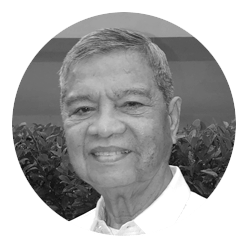 By Modesto P. Sa-onoy
By Modesto P. Sa-onoy
According to the Ateneo study, “Politics fanned and abetted the hysteria and misinformation surrounding Dengvaxia. But, while politics is intertwined with public health, it must not compromise nor encumber public health, and instead support it.”
Taking that sad experience, the PDI editorial asked: Has the government done this adequately, or at all, in the present case?
Replying to its question, the editorial pointed out that “The Department of the Interior and Local Government announced in February that it was launching an intensified public information drive in partnership with local government units and uniformed personnel. But there are more designated spokespersons in the administration’s anti-communist task force (eight as of last count) than in any visible and sustained nationwide information drive to regain the people’s faith in vaccines.”
The campaign, however, skipped the most vital issue. PDI said, “Instead of working on that vital civic task, President Duterte has once again chosen a draconian, ill-considered approach. People would no longer be told beforehand what vaccine they were to receive, he declared, with folks at best told just before receiving their shots.”
According to Health Undersecretary Myrna Cabotaje: ‘If they want to be vaccinated, they should go to the facility or vaccination site and whatever vaccine is available is the one they will receive.’”
In fact, the government position is “Don’t ask. Just get the jab.” Likewise, the government did not want people to know what kind of vaccine is being injected into them. Why keep secret from the patient the vaccine that could cost him his life and risk his health? Is this legitimate? Whatever happened to the right of the patient to consent and the doctor’s duty to inform and secure that consent?
Indeed, PDI continues, “Would such a policy encourage people to wake up early in the morning, brave the heat and the crowds, on the off-chance they would be getting the vaccine of their choice, which is, after all, their human right? (Mr. Duterte himself enjoyed the privilege of choice, going for the Chinese brand Sinopharm—a vaccine still unapproved in the country.) True, at this point, all approved and certified vaccines would provide some measure of protection against COVID-19, which would, in turn, lead to protection for the greater public. But depriving people of information would not foster confidence. It could, instead, result in greater suspicion, fear, and cynicism among them.”
This is the most important issue that must be addressed by the government and all the employers forcing their workers to get vaccinated or else they would lose their jobs. The most vulnerable are those on contractual status or temporary work.
The coercive nature of the government and private sector campaign is against the law. I will elaborate on this issue later as criminal offenses and violations of the physician’s duty are being committed publicly.
“The principle of informed consent is so fundamental in medical ethics and I am shocked that the DOH wants Filipinos to sign up for vaccination not knowing which brand they’ll get,” protested medical doctor-anthropologist and Inquirer columnist Gideon Lasco in a tweet—just one of many to see the rashness and folly of the government’s latest move.
“If we are to build vaccine confidence and empower the people, they need more information, not less.”
Not only more information is needed, but more so the truth about the vaccine and the immediate, intermediate and long term effect. The problem is that the truth can increase the number of rejection, the reason that governments and the vaccine advocates are not being candid.
It is expected that with billions of people and billions of doses available there could be no shortage of patients. Indeed, the problem is not the vaccine but “a shortage of people to be inoculated.”
This is a reason that vaccines in advanced countries are being sent to under and undeveloped countries, and children are being targeted for vaccination. Many of the elderly have succumbed to the vaccine, a planned euthanasia, mainly in the US and Europe.
The Philippine has already over 7 million doses. This is small but smaller still is the acceptability.
At the rate the alternative treatment is spreading worldwide, the desirability of the vaccine will proportionately decline.





















